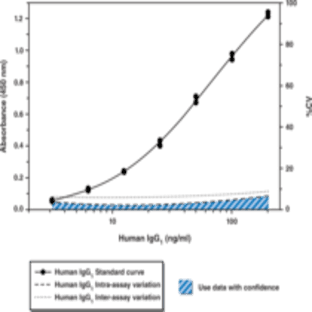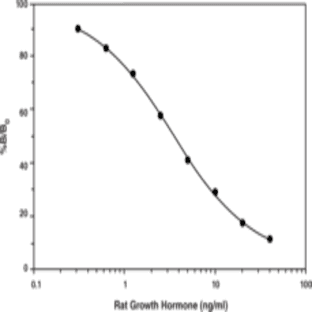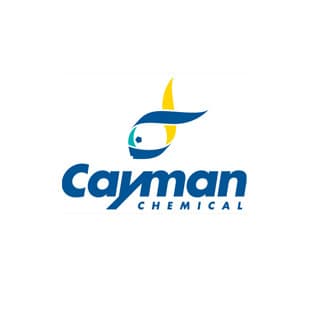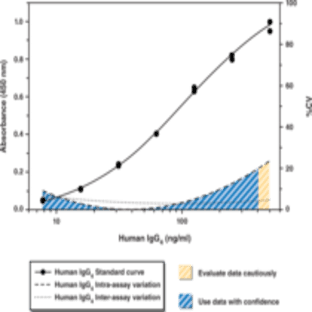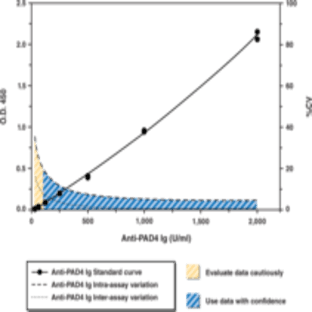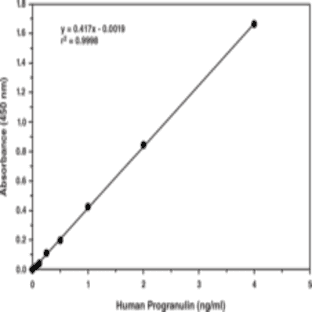
Supplier:
Cayman Chemical CompanyCat no: 10010153
Aspirin(TM) Effect-Detection Kit
Prices direct from Cayman Chemical Company
Quick response times
Exclusive Biosave savings/discounts
SPECIFICATIONS
Catalog Number
10010153
Form
1 ea
P Type
Assay Kits|Eicosanoids|NSAIDS
Weight
0
Storage Temp
4
Shipping Temp
4
Additional Info
Millions of Americans ingest daily 'mini-dose' (80 mg) aspirin(TM) as a means of selectively inhibiting platelet cyclooxygenase-1 (COX-1) and subsequent production of Thromboxane A2 (TXA2). Recent studies indicate that a subpopulation of these users do not achieve the desired level of inhibition of TXA2, as determined by its more stable metabolites. The Cayman Aspirin(TM) Effect-Detection Kit is a 510K, clinically approved diagnostic kit for the measurement of 11-dehydro TXB2. It is intended to help physicians assess the effectiveness of their patients' aspirin(TM) regime, and to help identify the high-risk group who are inadequately controlled on an 80 mg aspirin(TM) dose. Current methods for detecting aspirin(TM) resistance include a number of blood-based assays that measure in vitro platelet aggregation. However, these methods are not quantitative and can be affected by factors that are unrelated to aspirin(TM) sensitivity. In order to more quickly and accurately detect aspirin(TM) resistance in at-risk patients, we have developed a rapid, quantitative competitive immunoassay for 11-dehydro TXB2 using a monoclonal antibody. This new assay can be completed in three hours and utilizes urine as the sample matrix. The assay exhibits intra-assay %CV values of <11% with sensitivity sufficient to detect the lower levels of 11-dehydro TXB2 in patients that respond well to aspirin(TM). Thus, this sensitive, urine-based monoclonal ELISA for 11-dehydro TXB2 detection combines the speed of the blood-based assays with the sensitivity and quantitation of the ELISA.
Applications
ELISA, IF, IP, WB
Hosts
Rabbit
Applications
ELISA, IP, WB
Hosts
Rabbit
Latest promotions
Spend less time on DNA cleanup so you can do more science. The MSB Spin PCRapace is the fastest way to purify your DNA from PCR, restriction digestion, and...
New brilliant antibodies, and new lower prices!For flow cytometry reagents in general, \"bright is better.\" The violet-excitable BD Horizon™ BV421 and...
As an incentive to qualify our BSA, we are offering a 20% discount when you purchase your first 100g, 500g or 1000g of any grade of Bovine Serum Albumin....
It is not every day that you are given something for nothing. We are giving away additional spectrophotometer software.Cecil Instruments have enhanced the...
Did your supplier increase the price of Fetal Bovine Serum? Did they substitute the US Origin with USDA? Well say no more! Innovative Research is still...
For the past decade scientists have extensively used ATS secondary toxin conjugates to make their own targeted toxins for in vitro use.The ability to combine...
We're so sure that you'll prefer Cayman Assay kits over your present brand that we're willing to give you a free assay kit to prove it!
10% Discount on 2 Rabbit Polyclonal Antibody Service. With over 20 years experience, SDIX has developed into the premier US custom antibody producer,...
Bulk Cytokines with Custom Vialing.20 - 50% off cytokines, growth factors, chemokines and more...For a limited time Cell Sciences is offering substantial...
Jenway’s 73 series spectrophotometer range provides four models with a narrow spectral bandwidth of 5nm and an absorbance range of –0.3 to 2.5A,...
Are you planning to have a customised antibody made for your research?Since 2000, Everest has been producing a catalog containing thousands of affinity...
Top suppliers
United States Biological
230753 products
Carl Zeiss Microscopy
27 products
Promega Corporation
11 products
Panasonic Healthcare Company
5 products
Life Technologies
1 products
Nikon Instruments Europe
11 products
Olympus Europa Holding GmbH
3 products
Leica Microsystems, Inc.
10 products
GE Healthcare Life Sciences
2 products
Tecan Trading AG
19 products
Beckman Coulter, Inc.
1 products
AB SCIEX
3 products
BD (Becton, Dickinson and Company)
1 products
RANDOX TOXICOLOGY
5 products
Randox Food Diagnostics
6 products










